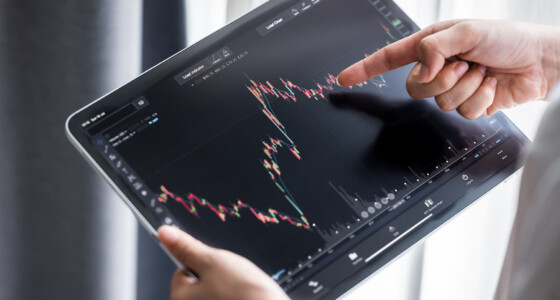

Market capitalization is an easy way to assess a company’s current value and potential for future growth. It reflects how much money investors are willing to pay for a particular stock. In this article, we have collected all the essential details you need to know about market capitalization and how to calculate it.
What is market capitalization?
The latest market value for an organization’s outstanding shares is known as market capitalization (market cap). The market cap is defined as “the product of the company’s up-to-the-minute share price and the total number of outstanding shares”.
This market capitalization value is of great significance for investors as they can easily rank and compare the companies’ relative sizes in their respective industries to make an investment decision. You must be thinking about how to calculate the market cap of a company.
Formula for market capitalization
Calculating market capitalization is much easier with a formula. Here is the market cap formula:
Market Capitalization = Current Market Price of Share x Total Outstanding Shares
Using this formula, let’s look at an example problem to understand how market cap is calculated.
Market Capitalization = $10 (Share Price) x 500 million (Total Outstanding Shares) = $5 billion
Market Capitalization categories
Based on the market cap definition, the stock market has categorized the stock into four classes.
Micro Cap
These are relatively young stocks, which are also called penny stocks. Their chances of rising and falling are equal. This is why success in microcap companies is highly variable and requires a lot of research before making investment decisions.
Small Cap
Market capitalization value for these companies falls between $250 million and $1 billion. There are a lot of companies belonging to this category, and all are in their growth stage. Since high investment risks are associated with small-cap companies, these stocks give high returns on your investments.
Mid Cap
The market value of mid-cap companies ranges from $1 billion to $10 billion. Generally, these stocks are more volatile when compared to large-cap companies and, thus, are growth-oriented.
Large Cap
Stocks having a market capitalization value of more than $10 billion are referred to as large-cap companies. Facebook, Apple, and IBM are just a few large-cap companies.
The market capitalization valuation and classification system help investors make smart decisions about their stock shares. In general, low investment risks are associated with large-cap companies as compared to small-cap ones. It is because the former owns more assets and capital. However, growth potential is relatively higher in the case of small-cap companies, and there are more capital gains for the investors.

Equity value metric
It should be noted that we define market capitalization only by the company’s total equity value. However, enterprise value refers to both debt capital and equity capital. Simply put, the entire value of a business is called enterprise value.
To clarify the difference between enterprise value and equity value, let’s look at an example of how to calculate the market value of a home with a net worth of $1,000,000. If the mortgage for the same house is $700,000, it will have $300,000 equity. Similarly, a company with $5 billion debt and a $10 billion market cap will have an Enterprise Value of $15 billion.
The bottom line
Market capitalization clearly gives you an idea of the company’s value in the stock market, and also predicts prospects. Its calculation using the market cap formula will help you make the right decision regarding future investments in the stock market.





